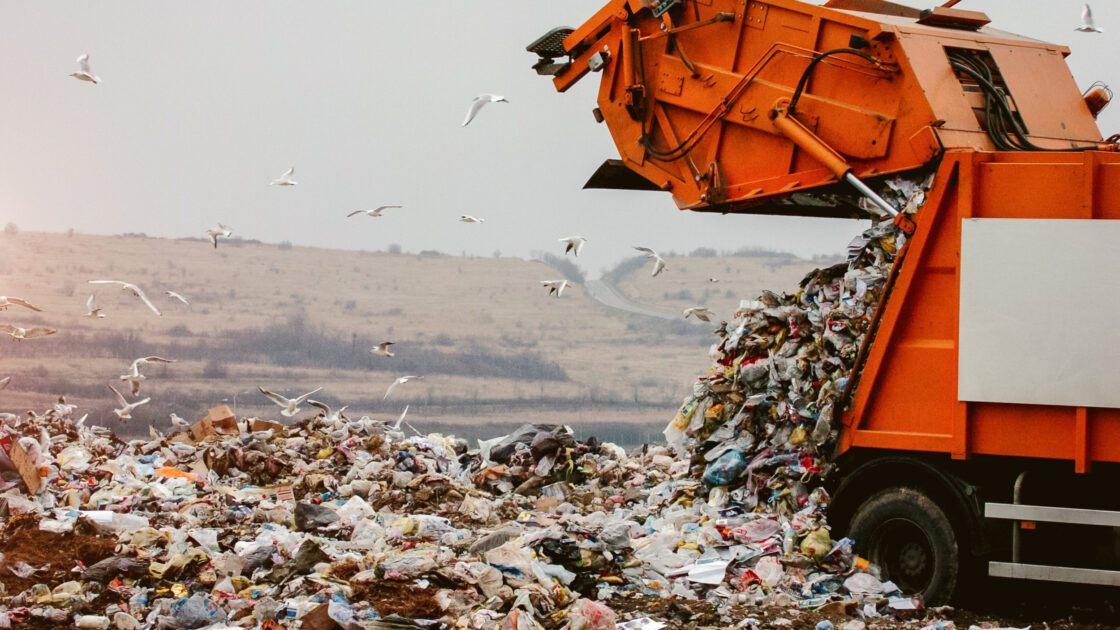This Food Waste Solution is Revolutionizing Industrial Composting

Food waste is getting a major makeover in the New York City tristate area. Startup Industrial/Organic has just announced the opening of its first food waste recovery facility in Newark, New Jersey, featuring a state-of-the-art process that transforms waste into an almost odorless fertilizer with zero methane generation.
Methane has been in the news as late, after a new study from Joint Global Change Research Institute found that global methane emissions for 2011 were 11 percent higher than 2006 estimates, leading to methane, which is far more potent than carbon dioxide, accounting for about 16 percent of global greenhouse gas emissions. Any development that reduces the production of methane, then, is welcome.
This saving grace for the ozone layer is the brainchild of Amanda Weeks, Industrial/Organic co-founder and a native of Staten Island. Weeks grew up not far from Fresh Kills landfill which, before closing in 2001, was the world’s largest.
“When I was little, everywhere we went, we would drive past this giant landfill, and I thought it was totally normal,” says Weeks.
Weeks went on to work in the world of advertising, but the reality of where trash goes when it’s picked up from the curb never really left her. About five years ago, she discovered a new interest in food – and subsequently, in the nearly 1.3 billion tons of food wasted around the globe every year. While individuals certainly contribute to that figure (about 30 to 50 percent of the total), much of that waste is commercial.
While this problem has been worsening for years, a strange set of circumstances prepared the stage for Industrial/Organic’s success. In 2014, Peninsula Compost Company in Delaware announced that it would be closing, after complaints regarding its “undue burden on the quality of life” of local residents “due to frequent uncontrolled odors,” David Small, Secretary of the Delaware Department of Natural Resources and Environmental Control (DNREC), told Biocycle at the time. This closure could not have happened at a worse moment: New York City Mayor Bloomberg had just passed a local law to mandate organic waste recycling for businesses: a citywide composting plan that would have diverted 100,000 tons of food scraps from landfills annually. But without Peninsula, it seemed impossible to accomplish.
“I realized that the real bottleneck in the industry and in adopting food waste recycling is in processing,” explains Weeks, noting that space, time, cost, and of course unpleasant odors made industrial composting a tough nut to crack. Weeks decided to see if there was a better, cleaner option, and after quite a bit of research and development, she found it: a process that, she says, “handles foo waste more like food.”
Industrial/Organic was inspired by fermenting processes, like those used to make kombucha and kimchi when creating its innovative approach. In an Industrial/Organic facility, bacteria are introduced to digest the sugars in food waste; these bacteria excrete organic acids, which lower the pH in the vessels, essentially sterilizing them.
“It also makes an inhospitable environment to sanogens, so we are able to completely avoid methane generation,” she says, noting that the speed of the fermentation, which lasts only three days, also discourages the formation of methane, which only develops after about 30 days.
Industrial/Organic announced in October that it had closed a $1.3 million round of funding, so the future looks bright for food waste. The company just opened its first facility in Newark, with plans for another facility in New York City and one in the Northeast, where Weeks notes there is little land available for landfills and other large-scale recycling operations.
“We’re excited to be part of the solution,” says Weeks.
Related on Organic Authority
Food Waste and Hunger Crisis Connection Tackled in New Harvard Report
One Man’s Trash is Another Man’s… Gasoline? British Delivery Trucks Run on Food Waste
Chef Sean Telo: Making Food Waste Delicious in Brooklyn

